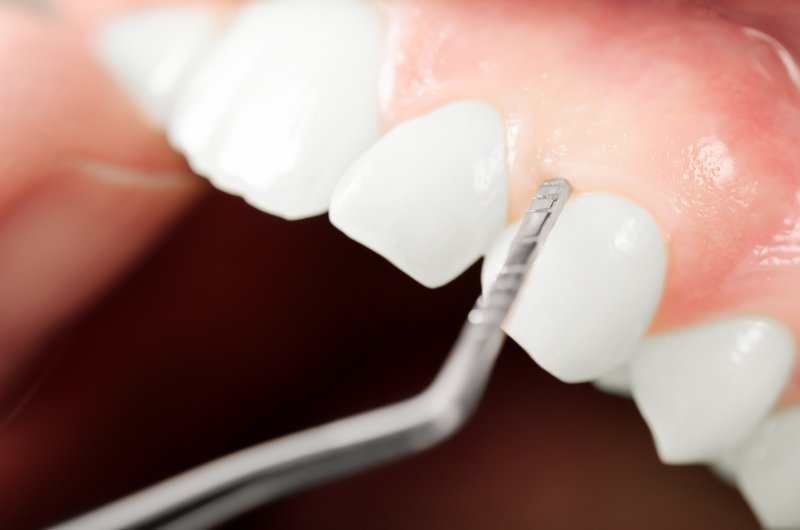
When it comes to oral health, it’s easy to worry about your pearly whites, but what about the tissues around them? September is National Gum Care Month; it’s an opportunity for dentists to remind their patients that a healthy smile means more than just keeping your teeth cavity free. Get into the spirit of the month by learning more about what can happen if you don’t take care of your gums.
The Real Role of Your Gums
Your gums play an important role in protecting your teeth. The roots of a tooth are very sensitive; if they become exposed, you could start experiencing a lot of discomfort whenever you eat something that is very hot or very cold. Exposed roots are also at a higher risk of infection.
For these reasons, it’s important to take care of your gums. If they start to recede, they’ll no longer help safeguard your teeth. And if your gums become infected, they’ll put your oral and overall health at serious risk.
Dangers of Gum Disease
Unfortunately, it’s very easy for your gums to become infected before you even realize it. This condition – gum disease – starts as gingivitis and eventually becomes periodontitis. If it does reach that last stage, your teeth could start to loosen and could be lost altogether. Even worse, gum disease has been linked to cardiac problems, diabetes, birth complications, respiratory illnesses and even Alzheimer’s.
You might not notice any symptoms of gum disease until it’s too late, but here are some possible signs that you need to call your dentist for treatment:
- Your gums have become red and/or swollen.
- Your teeth look longer than they used to (receding gums).
- You notice that your gums are tender and bleed easily whenever you brush or floss.
- There’s pus oozing out of the gums.
Preventing Gum Disease
Brushing and flossing don’t just clean your teeth; they’re also essential for keeping your gums healthy. You’re more likely to suffer from an infection in the spaces that a toothbrush can’t reach, so if flossing isn’t a regular part of your routine, make it one. When brushing, always be gentle; it doesn’t take a lot of effort to remove plaque from your teeth, and if you scrub too hard, it could hurt the enamel as well as your gums.
Rinsing with mouthwash is also a good idea. It’s no substitute for brushing, but it can greatly reduce bacteria levels in your mouth and make an infection less likely.
Finally, don’t forget to visit your dentist every six months. They’ll advise you on ways you can improve your oral hygiene routine, and if they find signs of gum disease, they can treat it before too much damage is done. Following this advice will help you enjoy your gums – and the ivories they protect – for years to come!
About the Author
Dr. Aliana Henkin began practicing dentistry in 2007. At her Springfield practice, Skyling Dental, she uses a gentle and compassionate approach to help her patients feel comfortable while they receive treatment. She enjoys being able to support the health of her community; if you have any concerns about the health of your gums, make an appointment by visiting her website or calling (973) 963-8181.
